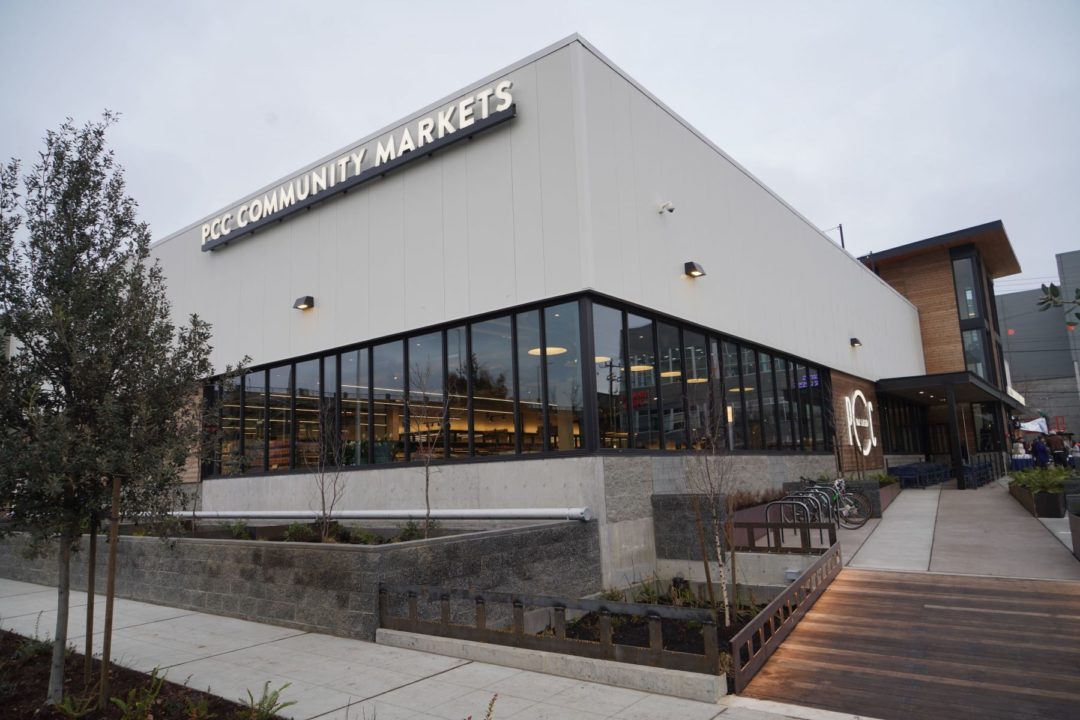“I am proud of the impact we have been able to make throughout the Puget Sound because of the efforts of our dedicated staff,” commented Krish Srinivasan, PCC Community Markets CEO. “I have served on the co-op’s leadership team since 2018 and have been a member for more than 25 years. I chose to become a member and build a career at PCC because I believe in our focus: supporting our neighbors. I am committed to working with our staff to continue this critical work—doing good in our communities will forever inform our actions and be a cornerstone of what PCC stands for.”
Fighting Hunger
PCC delivered more than 1.5 million meals to local neighborhoods in 2021, 100,000 more than the prior year. Additional efforts included:- Hunger Relief: Last year, PCC supported more than 45 organizations with more than $200,000 to assist like-minded local organizations in the hunger relief system. This work includes the co-op’s Downtown Seattle Food Access Grants that awarded six nonprofits with a total of $30,000 to help address food insecurity through the purchase of organic food.
- Donations and Event Sponsorships: The co-op donated to and sponsored local and regional events and programs through nearly $120,000 in support.
- PCC Grants: In 2021, PCC provided $45,000 in grants to support its local community. In support of the co-op’s longstanding relationship with Ventures, a Seattle-based nonprofit working to empower local entrepreneurs, PCC issued its Diverse Entrepreneur Grant program providing free capital to local, underrepresented small businesses.
- Bags for Good: For every reusable bag used by members and shoppers at checkout, 5 cents was contributed to the PCC Food Bank Program as well as to Washington Farmland Trust. Last year, PCC donated nearly $60,000 through shoppers’ reusable choices.
Food System Support
PCC was formed in 1953 as a food-buying club, and remains dedicated to preserving local farmland. In 2021, PCC supported farmers via:- Washington Farmland Trust: PCC was the original founder of the Trust, now a standalone nonprofit; the co-op remains deeply committed to supporting its work. In 2021, PCC provided more than $117,600 to help Washington Farmland Trust in its critical work to preserve and steward Washington’s threatened farmland.
- Connecting Farms and Food Banks: Growing for Good is a partnership between PCC, Neighborhood Farmers Markets and Harvest Against Hunger that supports local hunger relief systems and local farms. In 2021, the program connected 14 local, organic farms with 19 partner food banks. Through the Growing for Good program, 43,000 pounds of organic produce was purchased from local farms to provide specifically what local food banks needed. More about this program can be found in PCC’c current Sound Consumer issue, here.
- In-Store Purchases Equal Local Support: PCC provided nearly $50,000 to the Center for Whale Research and Long Live the Kings through in-store vendor partnerships. When shoppers bought locally crafted Cards by Lodie and Chinook Wine, a portion of the sale went to Center for Whale Research and Long Live the Kings, respectively.
Related: PCC Announces Grant Program Recipients, Art Installations in 2 New Stores PCC Awards $35k to 7 Nonprofits Fresh Thyme Donates Over $800k to Feeding America
“The future of farming in Washington is under threat,” said Melissa Campbell, Executive Director of Washington Farmland Trust. “With the support of partners like PCC Community Markets, we are working to protect farmland and keep land in production by making it accessible to a new generation of farmers. Investing in Washington farmland promotes healthy soil, local food, and thriving rural economies. Simply put: Healthy farms make our communities better.”








